Top 10 Health Benefits of Broccoli
Broccoli is a green vegetable that has the appearance of a tiny tree. It is a plant species known as Brassica oleracea. It is related to cabbage, Brussels ... read more...sprouts, kale, and cauliflower, which are all edible plants classified as cruciferous vegetables. Broccoli is a nutrient-dense vegetable high in vitamins, minerals, fiber, and antioxidants. Here are the best health benefits of broccoli.
-
A cup of raw broccoli has just 25 calories, fewer than 5 grams of carbohydrate, no fat, and only a few grams of plant protein. Nonetheless, broccoli is high in nutrients. One cup cooked provides nearly 250% of the daily target for vitamin K, which helps blood clot and is needed for bone health.
That same serving size also provides 135 percent of the daily goal for immune- and collagen-supporting vitamin C, more than 50 percent of the target for chromium, a mineral that aids in energy metabolism and blood sugar regulation, and more than 40 percent of the target for folate, a vitamin linked to memory and mood.
A cup of cooked broccoli also provides more than 10% of the daily requirement for vitamins A, B6, B2, and E, as well as phosphorus, choline, manganese, copper, and potassium, and at least 5% for magnesium, zinc, iron, calcium, and selenium. This powerhouse veg also contains plant-based omega-3 fatty acids called alpha-linolenic acid, or ALAs, which are linked to anti-inflammation and improved circulation.
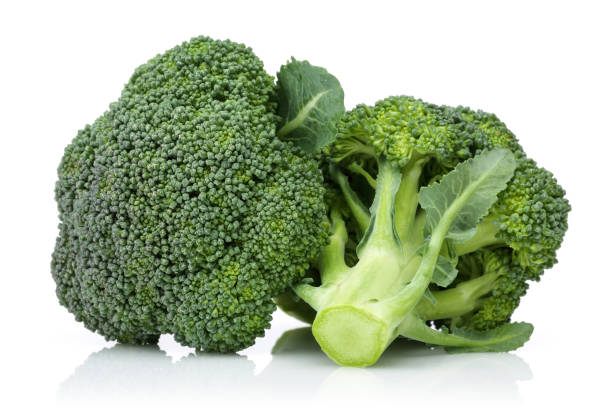
Packed With Vitamins, Minerals and Bioactive Compounds 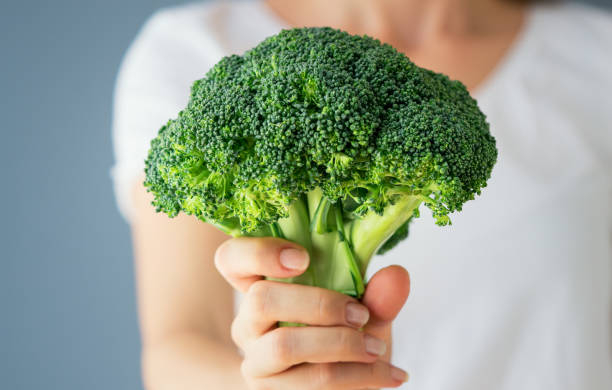
Packed With Vitamins, Minerals and Bioactive Compounds -
One of the broccoli's key benefits to human health may be its antioxidant content. Antioxidants are chemicals that limit or counteract free radical cell damage. This can result in less inflammation and a general health benefit. Broccoli has a lot of glucoraphanin, which is transformed during digestion into sulforaphane, a powerful antioxidant.
Sulforaphane has been shown in animal and test-tube experiments to have a variety of health advantages, including lower blood sugar, cholesterol levels, oxidative stress, and the development of chronic diseases. More study, however, is required to understand its role in people. Broccoli also includes trace levels of the antioxidants lutein and zeaxanthin, which may protect your eyes from oxidative stress and cellular damage.
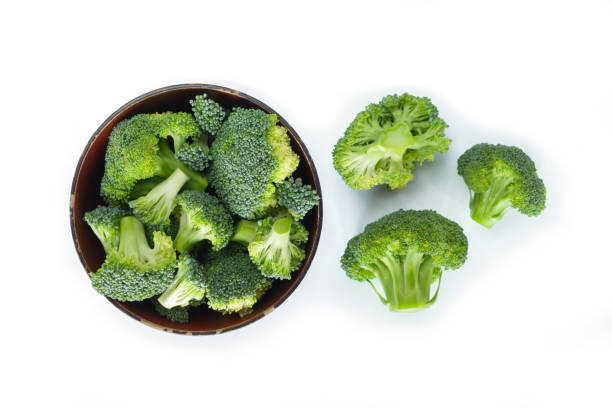
Contains Potent Antioxidants That Offer Health-Protective Effects 
Contains Potent Antioxidants That Offer Health-Protective Effects -
Broccoli has a number of bioactive chemicals that have been demonstrated to decrease inflammation in the tissues of your body. Multiple chemicals are thought to function synergistically to promote this effect, while some appear to work independently as well. Kaempferol, a flavonoid found in broccoli, has been shown in animal and test-tube tests to have potent anti-inflammatory properties.
A tiny human trial among cigarette users found that consuming broccoli reduced inflammatory indicators significantly. While these findings are encouraging, additional study is required to fully comprehend how the broccoli diet impacts inflammation in individuals. In comparison to most vegetables, broccoli has a comparatively high protein content, accounting for 29 percent of its dry weight. However, because of its high water content, 1 cup (91 g) of broccoli only contains 3 g of protein. Broccoli contains several bioactive compounds that demonstrate an anti-inflammatory effect in animal and test-tube studies.
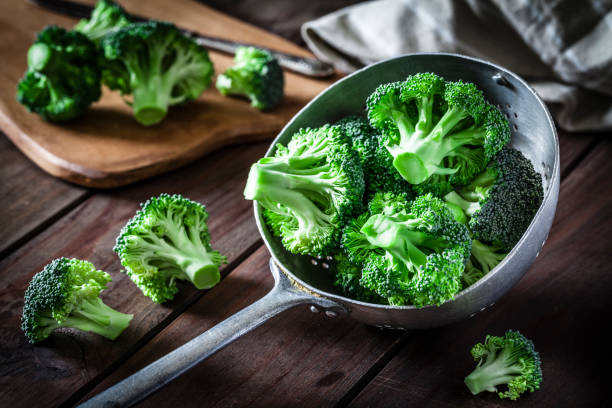
May Contribute to Reduced Inflammation 
May Contribute to Reduced Inflammation -
Cancer is defined by the fast proliferation of aberrant cells and is frequently associated with oxidative stress. Broccoli contains chemicals that are thought to protect against cancer. Consumption of cruciferous vegetables, especially broccoli, has been related to a lower risk of several cancers, including lung, colorectal, breast, prostate, pancreatic, and gastric cancers, according to observational studies.
Cruciferous vegetables are distinguished from other vegetables by a distinct class of plant chemicals known as isothiocyanates. According to research, isothiocyanates impact liver enzymes, reduce oxidative stress, reduce inflammation, activate your immune system, and fight cancer formation and growth. Sulforaphane, the major isothiocyanate in broccoli, works at the molecular level to prevent cancer growth by lowering oxidative stress. Sulforaphane levels in immature broccoli sprouts are 20–100 times greater than in full-grown broccoli heads. Though broccoli supplements are available, they may not contain the same quantity of isothiocyanates as full, fresh broccoli and hence may not provide the same health advantages.

Help Prevent Cancer 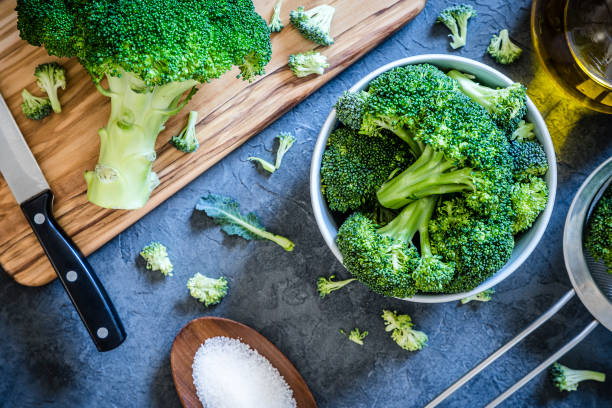
Help Prevent Cancer -
Cholesterol serves several roles in your body. For example, it is a vital element in the synthesis of bile acids, which help you digest fat. Bile acids are generated in your liver, stored in your gallbladder, and released into your digestive system whenever you ingest fat. The bile acids are then reabsorbed into your circulation and utilized again. Broccoli contains substances that bind with bile acids in your intestines, boosting their excretion and preventing them from being reused.
This leads to the creation of new bile acids from cholesterol, decreasing overall amounts of this marker in your body. This impact has been related to a lower risk of heart disease and cancer. Steamed broccoli, according to one research, is especially beneficial for decreasing cholesterol levels.
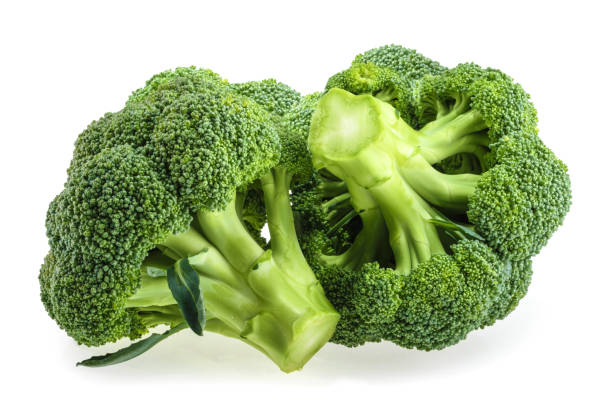
Lower Cholesterol Levels 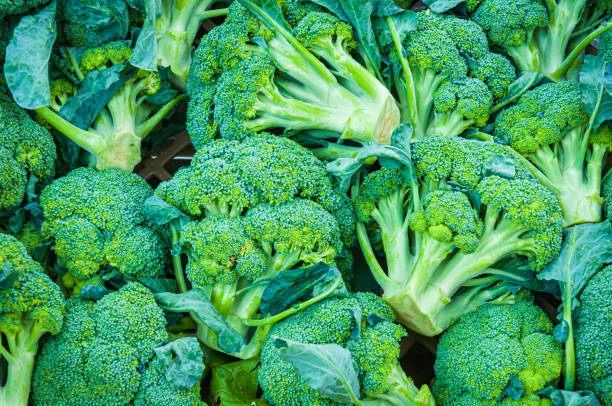
Lower Cholesterol Levels -
Several studies suggest that broccoli may be beneficial to heart health in a variety of ways. Elevated "bad" LDL cholesterol and triglyceride levels have been linked to an increased risk of heart disease. Broccoli may help to improve these indicators. In one research, those who took a powdered broccoli sprout supplement had lower triglycerides and "bad" LDL cholesterol levels, as well as higher "good" HDL cholesterol levels.
Some study also suggests that certain antioxidants found in broccoli may lower your overall risk of a heart attack. A study on broccoli sprouts in mice indicated a possibly protective impact against cell death and oxidative stress in heart tissue following a cardiac arrest. Furthermore, eating more fiber-rich foods like broccoli has been linked to a lower risk of heart disease.
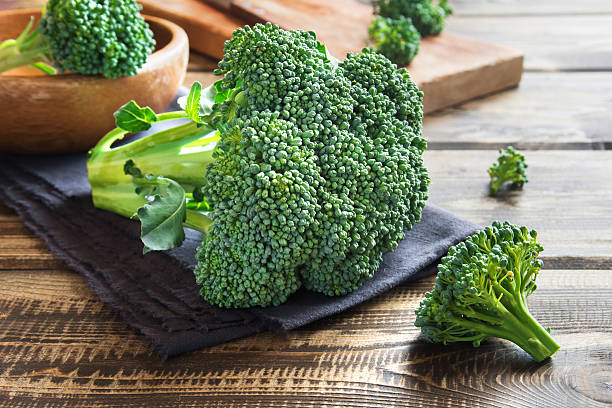
Support Heart Health 
Support Heart Health -
Broccoli is high in fiber and antioxidants, which can help with bowel function and digestive health. Regular bowel movements and a robust colony of beneficial bacteria in your colon are two critical components of digestive health. Consuming fiber- and antioxidant-rich foods such as broccoli may help to maintain good gastrointestinal function. In a study of mice fed a broccoli diet, researchers discovered lower levels of inflammation in the colon as well as beneficial alterations in gut microbes.
According to a recent human study, persons who ate broccoli were able to defecate more readily than those in the control group. Though these findings are encouraging, the further human study is required to fully comprehend how broccoli improves intestinal health. Broccoli consumption may help with bowel regularity and good gut bacteria, but further study is needed.

Promote Healthy Digestion and Reduce Constipation 
Promote Healthy Digestion and Reduce Constipation -
Broccoli contains nutrients and bioactive substances that may reduce mental decline and promote healthy brain and nerve tissue function. Research on 960 older persons found that eating one serving of dark green vegetables per day, such as broccoli, may help prevent mental deterioration associated with aging. In addition, animal research found that mice given kaempferol, a chemical found in broccoli, had a decreased incidence of brain damage and less inflammation of neural tissue after a stroke-like event.
Sulforaphane is another significant bioactive chemical found in broccoli that has the ability to improve brain function during a period of decreased oxygenation to the brain. Following brain damage or toxic exposure, mice treated with sulforaphane demonstrated considerable brain tissue repair and decreased neural inflammation in several studies. The majority of current research on the influence of bioactive chemicals found in broccoli on brain health is limited to animal studies. More study is needed to establish how these chemicals help humans' brain function.

Slow Mental Decline and Support Healthy Brain Function 
Slow Mental Decline and Support Healthy Brain Function -
Over the course of your life, the process of aging is mostly due to oxidative stress and decreased metabolic performance. While aging is an inescapable natural process, nutrition quality is assumed to play a significant role in influencing genetic expression and the development of age-related disorders. Sulforaphane, a significant bioactive ingredient in broccoli, has been shown in studies to reduce the biochemical process of aging by raising the production of antioxidant genes.
The more human study is needed to establish a cause-and-effect link between broccoli consumption and the aging process. Sulforaphane, a chemical present in broccoli, may have anti-aging properties. The more human study is required to fully comprehend this function.
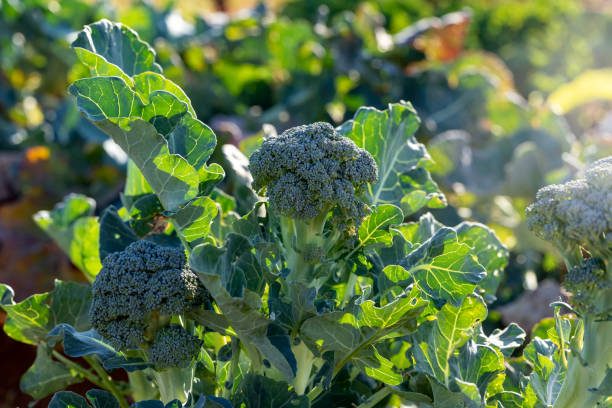
Help Slow the Aging Process 
Help Slow the Aging Process -
The human immune system is complicated, requiring a wide range of nutrients in order to operate effectively. Broccoli is high in vitamin C, which is likely the most important food for the immunological function. According to research, vitamin C has a function in both the prevention and treatment of a variety of ailments.
A daily dose of 100–200 mg of vitamin C appears to be adequate for preventing some illnesses. Vitamin C is commonly associated with oranges or strawberries, but broccoli gets credit as well – a half-cup (78-gram) dose of cooked broccoli contains 84 percent of the RDI for this vitamin. Broccoli is high in vitamin C, a substance that helps maintain a healthy immune system.

Support a Healthy Immune System 
Support a Healthy Immune System































